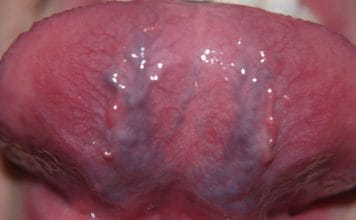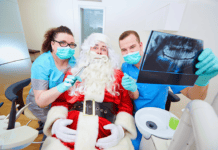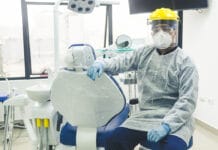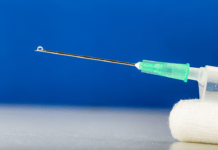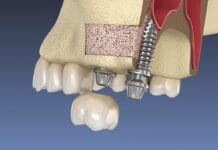How do dental hygienists embrace their role as a specialist beyond the dental chair? Many clinical dental hygiene providers eventually want to step into other positions in administration, health policy, global health, academia, research, or educational roles.
However, the information to pursue those pathways can be unclear or hard to find. The following information can be used as a starting point for dental hygienists who want to progress into alternative and advanced positions. It is general information that most degrees require, though more or less may be requested when applying to these programs.
Though hygienists can assume nonclinical positions without pursuing education higher than an associate’s or bachelor’s, many employment opportunities desire a bachelor’s or master’s degree. Many popular degrees are a master’s in public health, dental hygiene, education, and advanced dental therapy.
Master of Public Health
“…a career in public health will allow you to focus on proactive measures to preventing injury and reducing the spread of disease. As an effective leader in public health, you will have the opportunity to inform and empower individuals, communities, and populations to make healthy choices, to reduce morbidity and mortality, and to decrease health expenditures.”1
Who this is for: Anyone wanting to pursue jobs in health care or have an advanced degree that allows them a broad spectrum of job opportunities
Time to complete: 24 months, 42-45 credits
Type of program: Online, hybrid, or in-person
Typical requirements to apply: A bachelor’s degree by the time you start your MPH coursework and a 3.0 GPA on a 4.0 scale (either cumulative or within the last 90 credits of coursework)
Types of jobs: Community health organizer, research, infection control, public health program coordinators, hospital/dental liaisons, healthcare administrators, and epidemiology, among other positions
Typical tuition: $26,000
A Master of Public Health provides avenues for hygienists to advance into many different professional arenas. Public health degrees usually focus on several different areas of healthcare, including epidemiology, global health, healthcare administration, policy development, health promotion, and various other avenues. This degree prepares a hygienist to have options for many jobs.2
Master of Science in Dental Hygiene
“The Master of Science degree in Dental Hygiene is designed to accommodate graduate students around the world. Through the convenience of web-based instruction, the program allows students to earn a graduate degree while maintaining their current residence, career, and lifestyle.”3
Who this is for: Clinicians wanting to specifically further their knowledge in dental hygiene to prepare for positions specifically relating to dental hygiene
Time to complete: 2-8 years depending on thesis and enrollment status, 33-37 credits depending on the chosen pathway (administration, policy, research)
Type of program: In-person, hybrid, or online. Some programs require some form of campus visit for orientation or thesis
Typical requirements to apply: Graduation from an accredited hygiene program, a bachelor’s degree in dental hygiene or related field, average GPA of 3.0, a current hygiene license, and a C in statistics or biostatistics
Types of jobs: Administration (private or corporate), dental hygiene instructor or program director, oral health/dental hygiene researcher
Typical tuition: Starting at $25,000 (~$680 per credit hour, $4,963 per semester), dependent on program length, credit requirements, and university
A master’s degree in dental hygiene is, as of now, the farthest a hygienist can go for a higher degree in dental hygiene. Doctorate programs are being discussed and developed; however, they are not available in the United States at this time. For those wanting to have the most knowledge about dental hygiene, this degree is perfect. Not only does it prepare individuals to have an expansive knowledge of dental hygiene, but it also prepares clinicians to accept various positions in education, research, and healthcare/policy.
Master of Science in Education
“…the mission of the MEd program is to develop educational practitioners who exemplify leadership in values-centered education; effective management of educational change; effective practices in teaching and learning; sensitivity to diversity in learners, cultures and educational systems; and practical applications of theory, research and assessment in education.”4
Who this is for: Clinicians wanting to teach (regarding students, patients, or healthcare)
Time to complete: 16 to 24 months, 36-45 credits
Type of program: In-person, hybrid, or online
Typical requirements to apply: Bachelor’s degree, GPA of 3.0
Types of jobs: Administration, college instructor, policy and program coordinator
Typical tuition: $276 to $695 per credit hour, $22,000 to $26,000
Many universities and colleges offer a Master of Science in Education, and there are many different focuses, including instructional leadership, educational technology and innovation, and educational administration. A master’s degree in education lays the foundation for dental hygienists to become educators and/or pursue doctoral education. Though this is primarily geared towards individuals with a passion for educating, this degree will provide the foundation for many different modes of employment, in and out of dental hygiene.5
Master of Science in Advanced Dental Therapy
“The MSADT program provides the theoretical and applied skills necessary for licensure as a dental therapist and certification as an advanced dental therapist as defined by Minnesota statute…The MSADT program is a full-time graduate program combining classroom-based, web-enhanced courses with simulation and clinical learning environments. This program engages students in interprofessional educational experiences with members of the broader health care team as well as members of the dental care team.”6
Who this is for: Clinicians wanting to provide services above the scope of a dental hygienist (simple restorations, pulp capping, and uncomplicated extractions)
Time to complete: 5 full-time semesters, 18 months, 42 credits
Type of program: In-person
Requirements to apply: Active dental hygiene license, current dental hygiene professional liability insurance, required immunizations, CPR certification, HIPAA training, successful background study, and current health insurance, goals essay, two professional references, nitrous, local anesthesia, and restorative functions
Types of jobs: Advanced dental therapist
Typical tuition: $1,465 to $2,267 per credit depending on in- or out-of-state
Minnesota is the only state in the U.S. that offers a degree in advanced dental therapy. However, after graduating the program, other states recognize the scope of practice and allow dental therapists to practice in those states.
So far, Alaska, Arizona, Connecticut, Idaho, Maine, Michigan, Minnesota, Nevada, New Mexico, Oregon, Vermont, and Washington have authorized the services provided by a dental therapist. In order for dental therapists to practice, there must be a collaborative agreement with a dentist, and they may only provide these services to low-income, underserved, and uninsured patients. Dental therapists ensure that all people, regardless of socioeconomic or insurance status, are able to get quality dental care.
Endless Possibilities
A dental hygienist longing to pursue further education to have a more comprehensive grasp on education, healthcare, or research should consider any of these wonderful options. For those with specific interests in their careers, I would highly recommend doing your own research. In addition to the above information, reach out to professionals, and ask specific questions. You could ask:
- Where did you start?
- What were the first steps you took to branch out into a new career?
- Who did you talk to when you decided you wanted to pursue something outside of chairside hygiene?
- Did you need to attain another degree, or could you use the experience you already had?
- Who do you know that could help point me in the right direction for what I’m interested in?
If you want to pursue research, contact a professional or professor at a research clinic or hospital and ask what degrees are necessary to work in their clinic. If you want to pursue education, email your instructors or professors and ask where they went to college and what path they chose to pursue, and why. If you want to pursue public health, search for public health clinics and read the professionals’ biographies; research their degrees and where they went to school.
Any of these master’s programs will propel you forward if you’re looking to further educate yourself and provide services outside of clinical dental hygiene. Whichever you choose, I know that any individual trained as a hygienist will move forward, continuing to provide excellence, propagate change, and seek self-improvement for the betterment of health care.
Now Listen to the Today’s RDH Dental Hygiene Podcast Below:
References
- Master of Public Health (MPH). (n.d.). Concordia University Irvine. Retrieved from https://www.cui.edu/academicprograms/graduate/public-health
- Master of Public Health Program. (2021, January 04). Oregon State University. Retrieved from https://health.oregonstate.edu/academics/mph
- Master of Science in Dental Hygiene. (n.d.). Idaho State University. Retrieved from https://www.isu.edu/dentalhygiene/master-of-science/
- Current MEd Students. (n.d.). Concordia University Texas. Retrieved from https://www.concordia.edu/academics/college-of-education/masters-of-education/current-med-students/
- Masters in Education Degree Programs. (n.d.). Grand Canyon University. Retrieved from https://www.gcu.edu/academics/masters-in-education-degree-programs.php
- Advanced Dental Therapy MSADT. (n.d.). Metropolitan State University. Retrieved from https://www.metrostate.edu/academics/programs/advanced-dental-therapy-msadt








